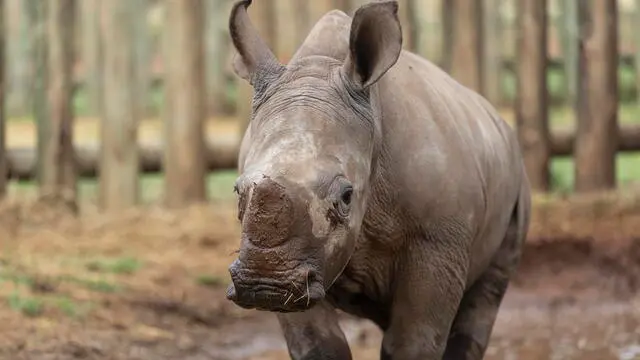India: zoo di Guhawati annuncia la nascita di un rinoceronte

NEW DELHI, 15 NOV - Lo zoo di Guhawati, capitale dello stato nordorientale indiano dell'Assam, ha annunciato la nascita del primo rinoceronte concepito in cattività negli ultimi dieci anni, e ha lanciato un concorso per dargli un nome. Il nuovo arrivato è il terzo rinoceronte nato nel centro di Guhawati, dopo Pori, che venne alla luce nel 2002 e Sanatan, nel 2013, ed è stato concepito, grazie all'inseminazione artificiale, da una coppia di esemplari adulti che vivono nella riserva naturale di Kaziranga, una delle riserve al mondo che conta il maggior numero di rinoceronti. Per i primi mesi, la coppia di genitori e il cucciolo saranno tenuti in un'area dello zoo, inaccessibile ai visitatori.
Riproduzione riservata © Giornale di Brescia
Iscriviti al canale WhatsApp del GdB e resta aggiornato
